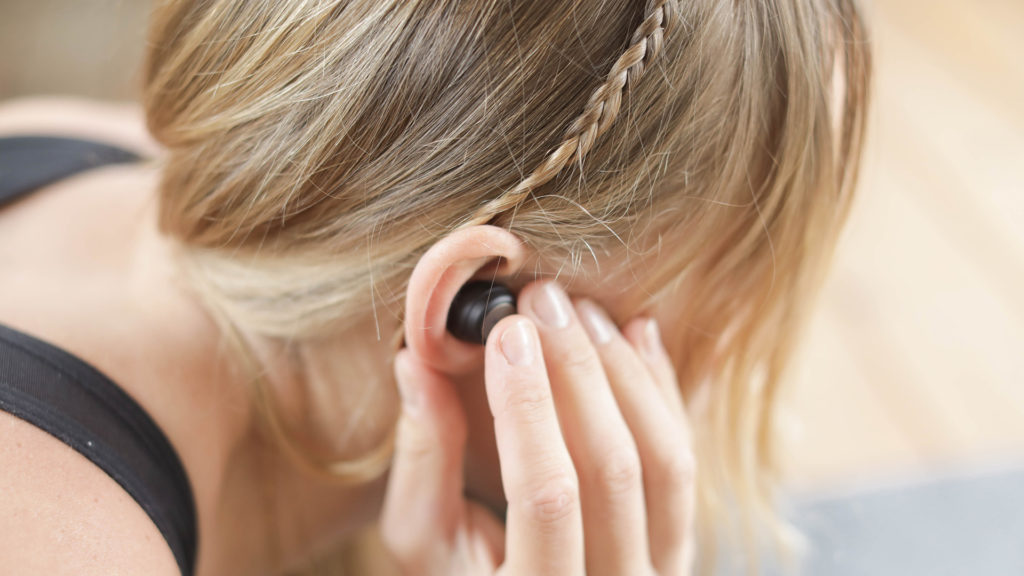Do you love music?
There’s something magical that happens to us when our favourite song gets played on the radio. You find yourself reaching to turn up the volume, you’re tapping to the beat and joining in the chorus. Your mind that was thinking about other mundane stuff is now focused, attentive and enjoying the moment.
Music has been part of us for a very long time. The oldest musical instruments, flutes made of bird bone and mammoth ivory date back 43,000 years. We don’t know what they were used for, but it reveals that music, whether we’re listening to it or creating has long played a vital role in our evolutionary history.
We listen to music a lot.
One survey in 2019 showed Australians were listening to music for 3-4 hours a day and 1/3 of Australian adults said it was their number one passion.
How much music do you listen to each day?
What music provides
- We can use it to change or strengthen the mood we are in. At the end of a busy day, music is a great way to relax and unwind and to put us in a better frame of mind.
- It can transport us to a different time and place to a specific event or person we were with.
- It can be nostalgic, certain genres or eras of music take us to a time of our lives where music played an important focus, like when we were teenagers.
- It can energise you, so you put in more effort when working out, or keep you in the zone while practising yoga or meditation.
- The lyrics can provide us meaning and sense making.
- An outlet to help you express or deal with difficult emotions
- It can provide a sense of awe and wonder when listening to a beautiful piece of music that you find inspiring and uplifting.
- It’s good for our physical wellbeing – lowering blood pressure and anxiety. It can help improve your sleep pattern, increases pain tolerance, boosts mental alertness and memory.
- It’s helpful to our mental wellbeing.
Do you use music to make yourself feel better?
Is there a particular song or piece of music that evokes strong emotions or memories for you?
Do you use music at work to keep you energised, focused or calm?
Has music helped you deal with the pandemic, to cheer you up or make you feel less stressed?
Taking a deeper look into the benefits of music, studies have shown:
Music is a connector
Music is a form of universal communication that transcends language. It creates social bonds and nurtures unity.
We sing lullabies to our babies, we listen to songs about love and pain, we have songs and music of protest and national anthems that remind us of our cultural heritage.
It forms some of our strongest memories
If you’ve ever watched those musical quiz shows where the contestants have to remember the name of the singer or group, or the date the song was released, you’ll know that musical memory lasts a long time.
In fact, it’s been shown that musical memory lasts longer than any other form of memory which is why for people living with Alzheimer’s or other forms of dementia, music therapy plays such an important role in triggering recall of tunes even when the capacity for language has been lost.
Music rewards the brain
Listening to music you like, triggers the brains’ reward circuitry leading to the release of dopamine the neurotransmitter associated with rewarding behaviour, this motivates us to persevere and repeat the rewarding activity.
Music is a great neural workout
Research from Johns Hopkins has shown music to be a total brain workout because it is “structural, mathematical and architectural. It’s based on the relationships between one note and the next meaning it takes a lot of cognitive work to make sense of it.”
Music activates the auditory cortex while synchronising with the parts of the brain associated with emotion. Simultaneously it activates a variety of areas associated with memory as well as the motor system so we can pick up the beat. Is your foot tapping yet?
Music boosts exercise performance
Depending on your preference, music is helpful if you’re engaged with a more monotonous activity, like running on a treadmill or packing sausages on a production line. It keeps you focused and working to speed. If your favourite 3-minute song has another minute to play you might just feel inspired to last that little bit longer to get to the end. Why not try syncing your next workout to music that allows you to reach peak exercise performance using less oxygen, using the music like a metronome for your body.
Exercise primes the brain for optimal performance, meaning working out more effectively and for longer is going to provide you with the cognitive advantage of enjoying a better mood and readiness for more effective learning, increased processing speed and your ability to memorise information.
It’s helpful in for those living with mental illness
Music therapy is used for patients with schizophrenia by enhancing health and wellbeing through the release of dopamine that is associated with reward, motivation and pleasure, cortisol associated with stress and arousal, oxytocin for social connection, serotonin for enhanced immunity.
It assists in lowering anxiety
Anxiety can manifest in many different situations, from high-stress workplace environments to those dealing with severe illness or going through rehabilitation, though one study showed that listening to soothing music before an expected anxiety-provoking effect doesn’t help, but listening afterwards does.
If you have anxiety, how do you use music to reduce the intensity of your symptoms?
It reduces symptoms of depression
Music therapy sessions run by board-certified music therapists and/or music medicine carried out by other professionals has shown that classical, jazz or drumming (percussion music) has found music to be an effective treatment intervention for reducing symptoms and improving quality of life.
A small survey conducted by AARP in 2020 found that just over 1/3 of the adult population in the US spend half of their time or more in everyday activities listening to background music.
While 2/3 of adults (especially those over 50) were reported to pay close attention to recorded music.
Both groups were found to have slightly higher average scores for mental wellbeing and slightly lower levels of anxiety and depression compared to other people. That’s encouraging to hear.
Music makes you more productive and creative
Caveat: This depends on the type of work you’re doing and your personal preference.
Being somewhat noise sensitive, I find it hard to concentrate in the presence of extraneous noise including music. It’s one thing to be able to choose what to listen to, but overall, I require peace and quiet to think, except when I am hanging loose in the kitchen whipping up a culinary storm or doing those tasks, I don’t enjoy so much like folding laundry or hoovering.
What’s true for you?
Studies have shown that being allowed to listen to the music of your choice (i.e., having control over the sounds in your environment) in the office can help you to complete tasks more quickly and create better new ideas.
If you are a software developer, listening to music helps you to produce better work and feel happier.
Surgeons listening to music of their choice in the operating theatre were found to be less stressed, calmer, and worked faster and more accurately. (All well and good except if you are the assistant and happen not to love Wagner or country music!)
The other benefit of music is it’s linked to better overall cognitive functioning keeping you curious, healthy, happy, and enjoying a higher quality of life.
Tuning in to the music that makes you happy
Do you have a playlist of music you listen to, to give your mood a little boost and an extra zing to your day?
Some of my favourites include:
“Happy” by Pharrell Williams – guaranteed to get up me and bopping round the room
“Lovely Day” Bill Withers
“Can’t Stop the Feeling!” Justin Timberlake
“Uptown Funk” Mark Ronson
“Dancing in the Street” Bowie and Jagger
“I Gotta Feeling” Black Eyed Peas
“Three Little Birds” Bob Marley and the Wailers
What’s on your favourite happy music playlist?
How does music make you feel?
Dr Jenny Brockis is a medical practitioner and board-certified lifestyle medicine physician, keynote speaker and best-selling author. Her new book Thriving Mind: How to Cultivate a Good Life (Wiley) is now available for purchase.
If thriving in life and work is something you’d like to find out more about, please contact me to set up a time for a chat.





Fantastic article with so much information.
During 2020 I was having chemotherapy during the second half when I was the most fatigued and felt totally wiped out I couldn’t concentrate on reading I couldn’t retain it, I couldn’t watch tv the flickering light was too much. The only thing that made me feel better was listening to music. As I’m in my fifties listening to 80’s music from my teenage years and early twenties made me so happy and I actually felt good and I could forget about treatment for a while.
I can’t recommend music enough to help you feel better. I’ve reignited my love of music now buying an old record player and collecting vinyl
Thanks so much for sharing your insights Kelly. How brilliant that you’ve been able to rekindle your love of music though what was perhaps an unexpected pathway I hope you’ve got some great vinyl in your new collection